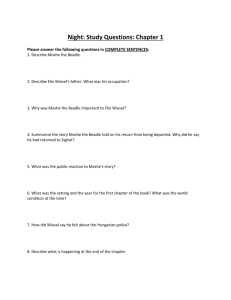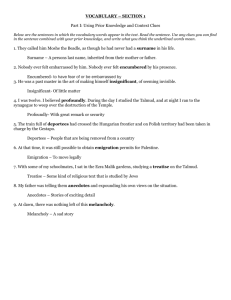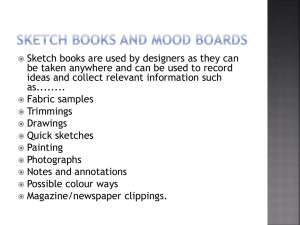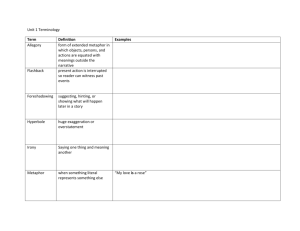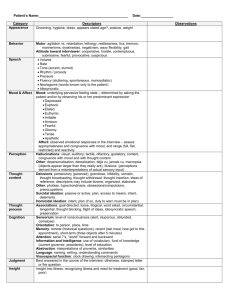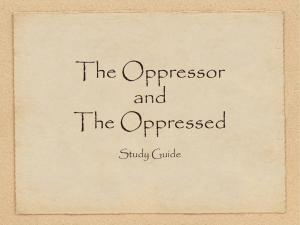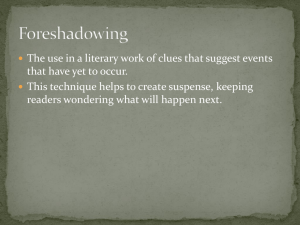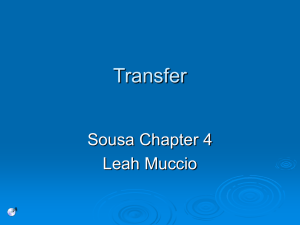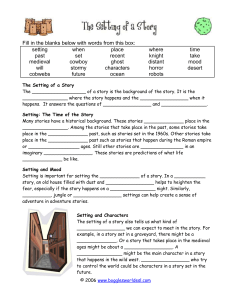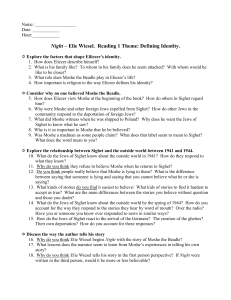Section 1, pages 1-20
advertisement
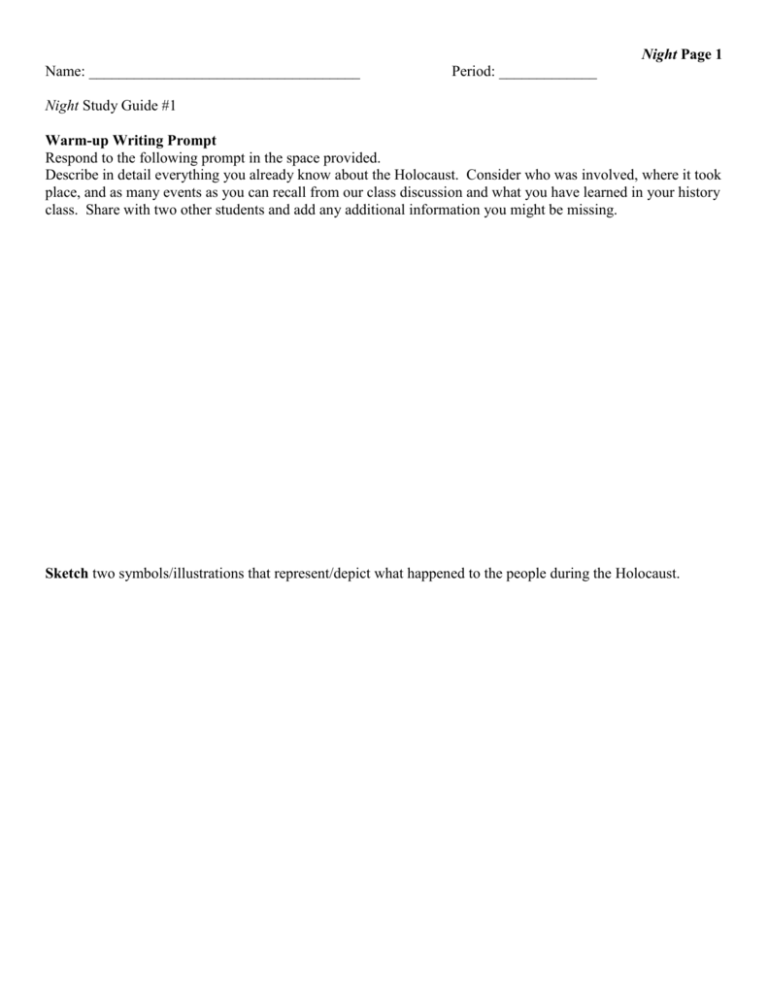
Night Page 1 Name: ____________________________________ Period: _____________ Night Study Guide #1 Warm-up Writing Prompt Respond to the following prompt in the space provided. Describe in detail everything you already know about the Holocaust. Consider who was involved, where it took place, and as many events as you can recall from our class discussion and what you have learned in your history class. Share with two other students and add any additional information you might be missing. Sketch two symbols/illustrations that represent/depict what happened to the people during the Holocaust. Night Page 2 Vocabulary, pages 1-20 Part I: Using Prior Knowledge and Context Clues Below are the sentences in which the vocabulary words appear in the text. Read the sentence. Use any clues you can find in the sentence combined with your prior knowledge, and write what you think the italicized words mean on the lines provided. 1. They called him Moshe the Beadle, as though he had never had a surname in his life. __________________________________________________________________________ 2. Nobody ever felt embarrassed by him. Nobody ever felt encumbered by his presence. __________________________________________________________________________ 3. He was a past master in the art of making himself insignificant, of seeming invisible. __________________________________________________________________________ 4. I was twelve. I believed profoundly. During the day I studied the Talmud, and at night I ran to the synagogue to weep over the destruction of the Temple. __________________________________________________________________________ 5. The train full of deportees had crossed the Hungarian frontier and on Polish territory had been taken in charge by the Gestapo. __________________________________________________________________________ 6. At that time, it was still possible to obtain emigration permits for Palestine. __________________________________________________________________________ 7. With some of my schoolmates, I sat in the Ezra Malik gardens, studying a treatise on the Talmud. __________________________________________________________________________ 8. My father was telling them anecdotes and expounding his own views on the situation. __________________________________________________________________________ 9. At dawn, there was nothing left of this melancholy. __________________________________________________________________________ Part II: Determining the Meaning Match the vocabulary words to their dictionary definitions. You may use a dictionary for this portion. ________1. surname ________2. encumbered ________3. insignificant ________4. profoundly ________5. deportees ________6. emigration ________7. treatise ________8. anecdotes ________9. melancholy A. hindered; restricted B. absolutely; in an unqualified way C. short, humorous stories D. leaving one area to settle in another E. sadness; depression F. written discussion of a topic G. a family name H. people who are expelled from a country I. trivial; not important Night Page 3 Study Questions: Read through these questions prior to reading chapter 1. Answer the questions as you read. Give as many details as possible. Section 1, pages 1-20 1. Describe Moshe the Beadle. 2. Describe Elie Wiesel's father. What was his occupation? 3. Why was Moshe the Beadle important to Elie Wiesel? 4. Summarize the story Moshe the Beadle told on his return from being deported. Why did he say he had returned to Sighet? 5. What was the public reaction to Moshe's story? 6. What was the setting and the year for the first section of the book? What was the world condition at the time? 7. Describe, in order, the events that happened from the last day of Passover until Pentecost. 8. How did Wiesel say he felt about the Hungarian police? 9. Who was Martha? What happened when she visited the Wiesel family in the ghetto? Night Page 4 Mood The mood or tone of a story is the author's attempt to create the atmosphere of story. The mood evokes an emotional response from the reader and lets the reader know how the characters feel. It may stay the same throughout a story, or it may change, depending on circumstances and events. The author's descriptions and the characters' dialogue and actions express the mood of the story. Mood can be stated or implied. Give your impressions of the mood conveyed by the title and jacket artwork. Reread the first section of the book to see where and how the mood changes from relatively pleasant to fearful. Make a list of words that Wiesel uses to invoke a certain mood (choose at least 10 words). Chapter journal and sketch. For this unit, you will be asked to keep a sketchbook- journal. This is a combination of sketches about and written responses to the story. You will be required to make an entry for each chapter in the novel. Create a title for each chapter based on what happened in the chapter. Also date each entry. Sketch memorable scenes from the chapters. Even if you do not consider yourself a good artist, try to make some sketches. Use colors that remind you of the mood of the story. The written entries should focus on your response to the literature, and should not merely be chapter summaries. They should include comments about your thoughts and feelings while reading, any questions you have, and predictions about the next chapter. Try to write at least one page for each entry. Choose one important sentence from the book. Copy it word for word in the space provided. Include the page number. Date: Quote, page#: Chapter Title: Illustration of one scene from the chapter: Written response to chapter:
